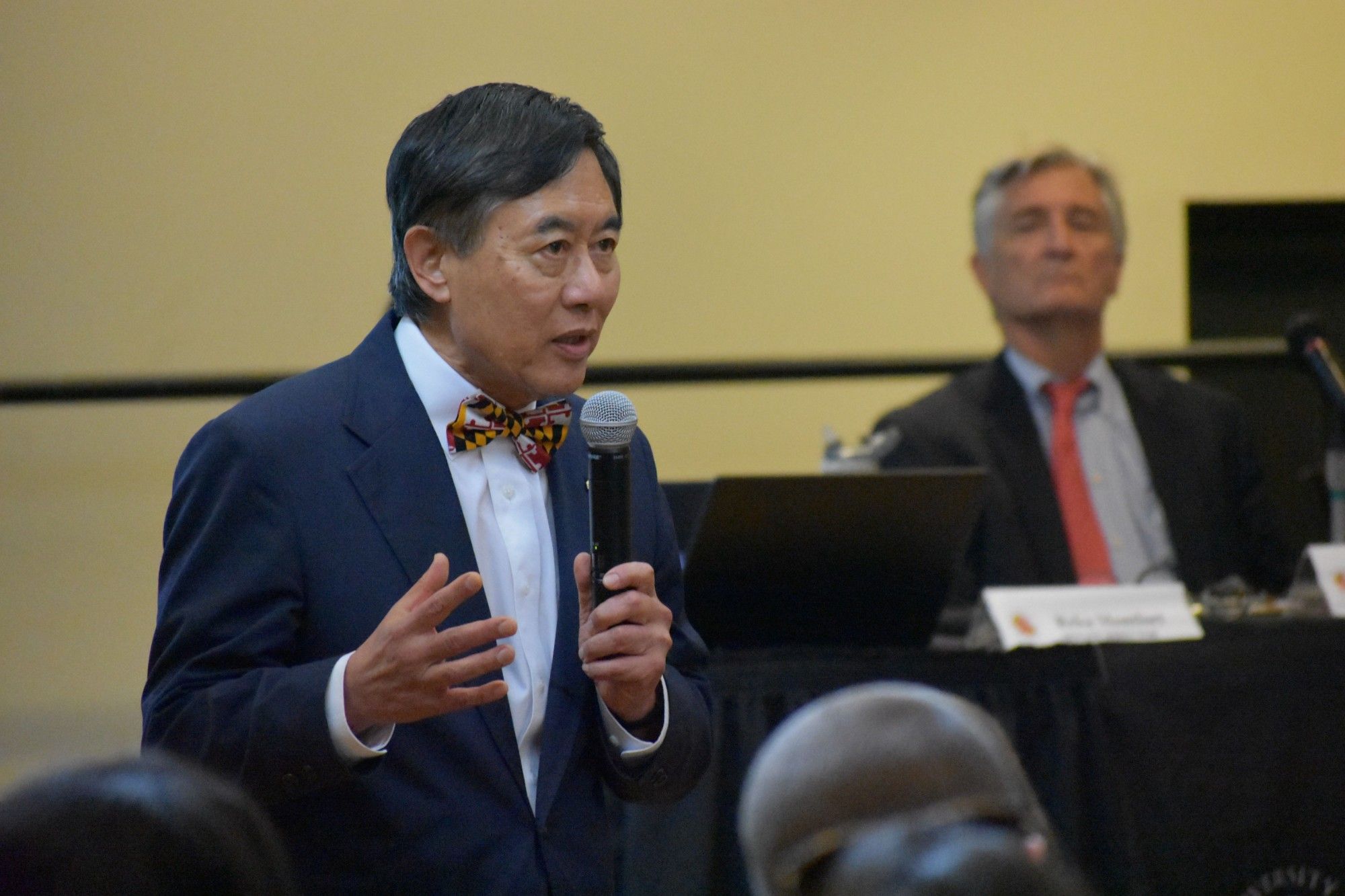Views expressed in opinion columns are the author’s own.
The University of Maryland’s is currently sitting in a grotto of its own sludge: At the same time we receive the commissioner’s report into the football program that led to a player’s death — illuminating severe misconduct by multiple administrators — several housekeepers across multiple dorms have reported being chastised for speaking Spanish while at work and a DCist article has highlighted this university’s active contract with ICE. All these incidents are unambiguously antithetical to the things this university claims to value, such as cultivating a more international culture, or good leadership or just, very simply, “doing good.”
These problems all call for a response and commitment to change. That’s how this university could avoid having them knit together and become something larger than isolated incidents, avoid the judgment that this has become a pattern because administration just doesn’t care and just doesn’t administrate. But it’s failing to mitigate the damage by doing what it consistently does whenever something egregious happens — taking too long to react.
Jordan McNair suffered fatal heatstroke at a team workout in May, and while there needed to be some time for investigations and to establish the timeline of events, administration didn’t meaningfully speak on his death until months after the event. It was August before staff were put on leave and university President Wallace Loh said this university took responsibility for McNair’s death.
There was a need for more prescient action in those intervening months because now, with the reports released and the virulent toxicity of our football program’s culture exposed, it all looks so guilty. On Oct. 2, Loh said he’d never heard of abuse within the program, and on Oct. 4, he admitted to receiving an anonymous email reporting that very thing a year and a half ago. There was potential for things to change and develop in healthier directions if there had been a timely response to the allegations. And one would think guiding staff and addressing concerns is the purpose of the administration because if it’s not them acting, then who meaningfully can? And if that’s not their job, then what are we paying some of them half a million dollars to do?
Instead, Loh told the commission charged with investigating the football program over the past few months that some allegations “probably occur in every football program.” Whether slimy or just incompetent, there’s no way that statement would help the investigation or the university’s claim to care about its people. It only makes it clear that he still wasn’t taking the allegations of abuse seriously, when it was well past time to doubt something very irresponsible happened at that workout resulting in a healthy 19-year-old athlete dying from heatstroke, a condition with a 100 percent survival rate when properly treated.
The responses to the other scandals follow a similar pattern, in that the news has freshly broken and the university has said nothing of substance about the issues, about commitment to change, or anything about really caring at all. Though Loh and DJ Durkin were pushed from their positions just days after the commissioner’s report came out, it doesn’t change the protracted timeline after McNair’s death to get to this point. And this university probably won’t have a timely response to future scandals, either.
The most infernal thing about it is that we already understand and expect this from administration. It’s hard to get the momentum going on conversations about accountability and growth when the salient party won’t show up until forced to. And by the time they get here, they’re already the villains, so who’s really paying attention?
Sona Chaudhary, opinion editor, is a sophomore English and geology major. She can be reached at sonachaud@gmail.com.



